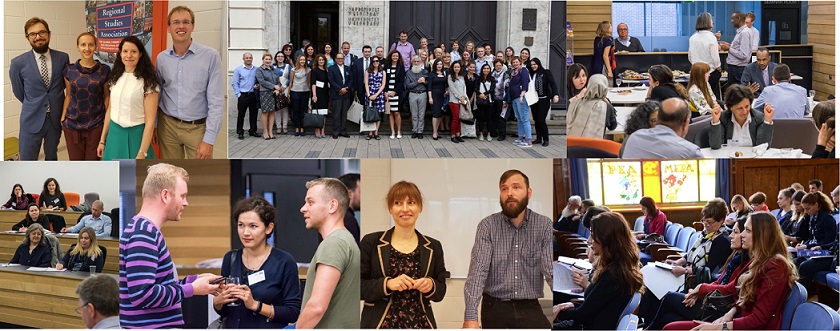
Organisers: Dr. Agnieszka Rydzik, University of Lincoln, Dr. Gary Bosworth, University of Lincoln, Dr. Danica Šantić, University of Belgrade, Dr Ruth McAreavey, Newcastle University
The MICaRD research network brought together scholars, policymakers and practitioners across Europe, providing a forum for debating current and emerging issues on European economic migration. This has seen participation from Ireland to the Ukraine and from Italy to Scandinavia fostering collaboration and stimulating new research opportunities. The specific focus on labour mobility within the EU and the impact on regional development in rural areas examined both sending and receiving nations in an attempt to build bridges across the disconnected geographies of migration research.
Over the past three years, we have participated in and organised five research events all of which focused on different aspects of migration:
- 3-6 April 2016 – Launch event and special panel session at Regional Studies Association Conference, Graz, Austria
- 17-18 May 2016 – Inaugural dinner and workshop ‘Exploring and identifying barriers to migrants’ opportunities in the labour market’ organised in association with the Trans-Atlantic Rural Research Network and hosted by Queen’s University Belfast.
- 18-21 September 2016 – ‘Contemporary Migration in Changing World: New Perspectives and Challenges’ International Conference hosted by the University of Belgrade, Serbia.
- 11-12 September 2017 – A two-day workshop on “ Out-migration and circular migration: impacts on regions and communities”, University of Warsaw, Poland
- 25-27th April 2018 – ‘Beyond Economic Contribution: Migrant Identities, Working Lives and Social Embeddedness’ International Conference, University of Lincoln, UK.
These events were attended by scholars from across the UK, Europe and beyond. A wide range of topics, theories and methodologies were covered, including integration, belonging and community cohesion; the challenges of doing research on migration in rural areas; mobility, spatiality and place; urban versus rural migration; depopulation, circular and temporary migration; gendered experiences of migration; entrepreneurial activities of migrant communities; and migration policy.
The last conference saw a strong support among delegates for the MICaRD network to continue for another three years so we are considering applying for further funding (please contact one of the organisers if you would like to help lead the next phase of MICaRD). A number of potential research collaborations have been identified and a special issue is planned as one of the outcomes of these MICaRD events. In particular, delegates identified three upcoming Horizon2020 calls that will be explored through ongoing international collaboration, supporting the legacy of the first RSA-funded MICaRD network.
